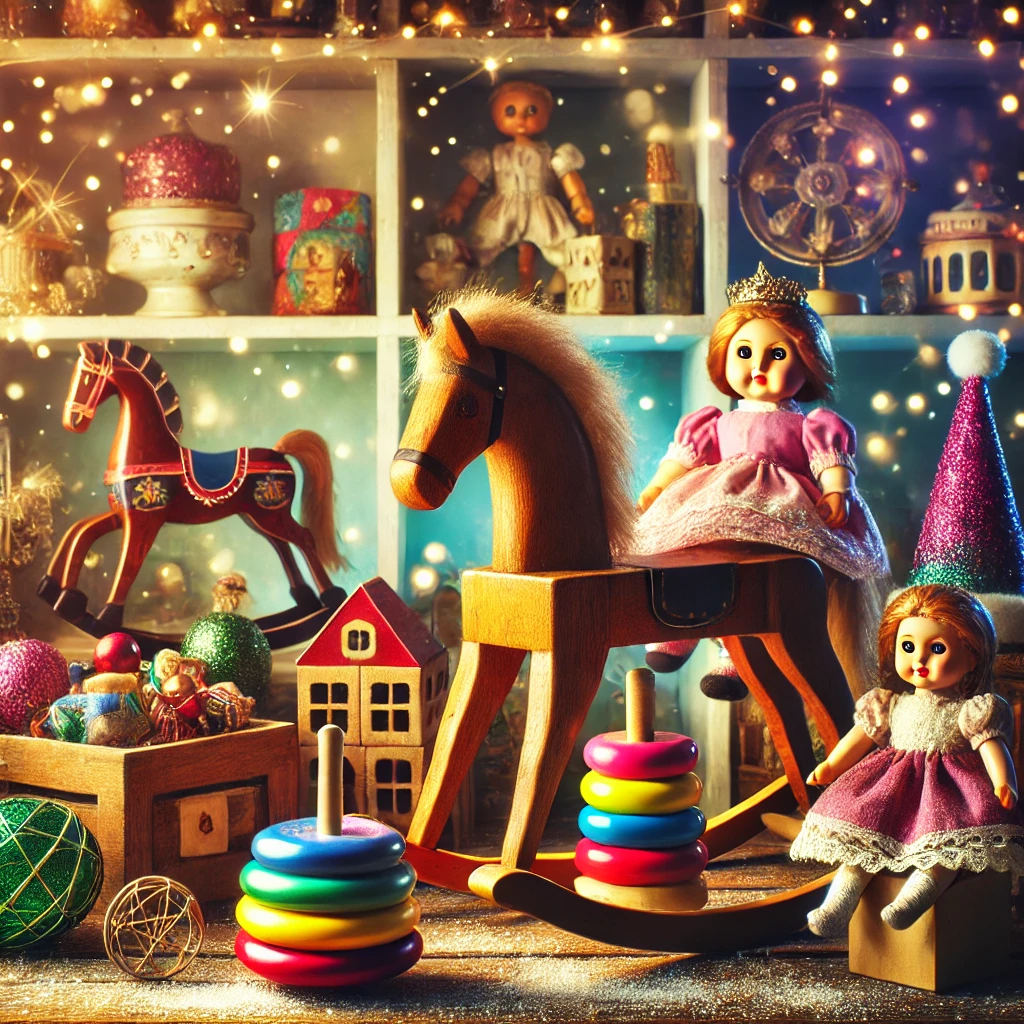In a world dominated by screens and digital entertainment, traditional toys remain a steadfast source of joy and learning for children.
From building blocks to classic board games, these timeless playthings offer an array of benefits that modern gadgets simply can’t match.
Here are 40 compelling reasons why traditional toys should be a staple in every child’s playtime repertoire.
Creativity and Imagination
Traditional toys like building blocks, dolls, and action figures provide an open-ended play experience, allowing children to create their own stories and scenarios.
Fine Motor Skills
Manipulating small objects such as puzzle pieces, beads, and stacking toys helps children improve their hand-eye coordination and dexterity.
Problem-Solving Abilities
Puzzles and construction sets challenge children to think critically and solve problems, fostering cognitive development.
Social Interaction
Board games and group activities encourage cooperation, turn-taking, and communication among peers.
Emotional Development
Playing with dolls and stuffed animals allows children to express and manage their emotions through role-playing.
Relationships
Traditional toys like board games and card games provide opportunities for family bonding and quality time together.
Patience and Perseverance
Many traditional toys require patience and persistence to complete, teaching children the value of hard work and determination.
Independent Play
Classic toys often allow for solo play, helping children learn to entertain themselves and develop independence.
Vocabulary and Language Skills
Storytelling and role-playing with toys can enhance children’s vocabulary and language abilities.
Cognitive Development
Games and puzzles that involve matching, sorting, and sequencing boost cognitive skills and logical thinking.
Curiosity and Exploration
Simple toys like magnifying glasses and nature kits encourage children to explore the world around them and develop a love for learning.
Sensory Stimulation
Tactile toys like clay, sand, and sensory bins offer rich sensory experiences that can be calming and therapeutic.
Physical Activity
Toys like balls, jump ropes, and bicycles encourage physical exercise, helping children develop strength and coordination.
Sharing and Cooperation
Playing with traditional toys in a group setting teaches children the importance of sharing and working together.
Memory and Concentration
Memory games and activities that require focus help improve children’s attention span and retention.
Scientific Thinking
Building sets and experiment kits introduce basic scientific principles and promote analytical thinking.
Cultural Awareness
Traditional toys from different cultures can teach children about diversity and global traditions.
Spatial Awareness
Toys that involve building and arranging objects help children understand spatial relationships and geometry.
Risk-Taking
Playing with toys like construction sets allows children to take risks and experiment with new ideas in a safe setting.
Resilience and Adaptability
Overcoming challenges during play teaches children to be resilient and adapt to new situations.
Fine Arts Appreciation
Art supplies and craft kits introduce children to various artistic techniques and mediums, fostering an appreciation for the arts.
Eco-Friendly Play
Many traditional toys are made from natural, sustainable materials, promoting environmental consciousness.
Educational Value
Educational toys such as abacuses, alphabet blocks, and maths games reinforce academic concepts in a fun way.
Mindfulness and Relaxation
Calm and focused activities like threading beads or completing a jigsaw puzzle can be a form of mindfulness, reducing stress.
Handwriting Skills
Toys that involve writing, drawing, and tracing help children develop their handwriting skills.
Logical Reasoning
Strategy games and logical puzzles require children to think ahead and plan their moves, enhancing logical reasoning.
Emotional Intelligence
Role-playing with toys helps children understand and empathize with different perspectives and emotions.
Observation Skills
Games and activities that involve observation and matching sharpen children’s attention to detail.
Lifelong Hobbies
Traditional toys can spark interests that lead to lifelong hobbies, such as building models or collecting stamps.
Sequential Thinking
Many traditional toys require following steps in a sequence, which helps children develop organizational skills.
Confidence
Successfully completing a challenging puzzle or building a structure boosts children’s confidence and self-esteem.
Parent-Child Interaction
Playing with traditional toys provides an opportunity for parents to engage with their children and support their development.
Eco-Friendly and Sustainable Play
Wooden toys and other traditional playthings are often more environmentally friendly than plastic, battery-operated toys.
Logical and Critical Thinking
Games that involve strategy and logic enhance children’s ability to think critically and make decisions.
Reading
Books and story-related toys promote a love of reading and storytelling from an early age.
Mathematical Skills
Many traditional toys involve counting, sorting, and measuring, which reinforce basic maths.
Coordination and Balance
Physical toys like scooters and balance boards help children develop their coordination and balance.
Time Management
Games with time limits teach children to manage their time effectively and make quick decisions.
Self-Expression
Art supplies and musical instruments provide outlets for children to express their creativity and emotions.
Teamwork Skills
Collaborative games and building projects teach children how to work as part of a team and achieve common goals.
Conclusion
Traditional toys are more than just fun—they are powerful tools for learning and development.
By incorporating these timeless playthings into your child’s daily routine, you can provide them with a rich and varied play experience that supports their growth in countless ways.
Whether you’re building with blocks, solving puzzles, or engaging in a friendly board game, the benefits of traditional toys are truly endless.
Embrace the charm and educational value of these classic toys and watch your child’s imagination and skills soar.
